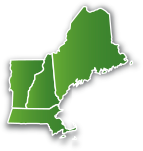5/18/2020
To access the downloadable version of click Cloth Face Coverings Directory by State 5.11.20.



COVID-19 Insights – March 24, 2020
Read this important information before giving out your personal information Form MINTZ
|
||||||||||||||||||||||||||||
12 March 2020
Dear New England Life Care Patient:
As your trusted health care provider, we are writing to provide you with some basic information about coronavirus and the steps you can take to protect yourself and your loved ones.
Coronaviruses (CoV) are a large family of viruses that cause illness from the common cold to more severe respiratory diseases. The coronavirus (also referred to as COVID-19) is a new strain that has not been previously identified in humans.
Common signs of COVID-19 infection include fever, cough, shortness of breath and breathing problems. Older people and people with severe chronic conditions should take special precautions because they are at higher risk of developing serious COVID-19 illness.
The likelihood of catching coronavirus is still very low. The highest risk is among people traveling to high risk-areas, currently China, South Korea, Japan, Iran, Italy, Germany and France or coming into contact with someone who recently traveled to one of these areas.
There is currently no vaccine to prevent coronavirus disease. The best way to prevent getting sick is to avoid being exposed to this virus. The U.S. Centers for Disease Control (CDC) always recommends everyday protective actions to help prevent the spread of respiratory diseases, like the common cold, flu and COVID-19, including:
- Wash your hands often with soap and water for at least 20 seconds, especially after going to the bathroom; before eating; and after blowing your nose, coughing, or sneezing.
- Avoid touching your face.
- Cover your cough or sneeze with a tissue, then throw the tissue in the trash.
- Disinfect frequently touched objects and surfaces using a regular household cleaning spray or wipe.
- Avoid close contact with people who are sick and avoid large group meetings.
- Stay home when you are sick.
- CDC does not advise that people who are well wear a facemask to protect themselves from respiratory diseases, including COVID-19. Facemasks should be used by people who show symptoms of COVID-19 to help prevent the spread of the disease to others.
- The use of facemasks is also crucial for health workers and people who are taking care of someone in close settings (at home or in a health care facility).
If you are sick and suspect you are infected with the virus that causes coronavirus, you should follow the steps below to help prevent the disease from spreading to people in your home and community.
- Stay home: People who are mildly ill with coronavirus are able to isolate at home during their illness. You should avoid activities outside your home, except for getting medical care.
- Avoid public areas: Do not go to work, school, or public areas.
- Avoid public transportation: Avoid using public transportation, ridesharing, or taxis.
- Stay away from others: As much as possible, you should stay in a specific room and away from other people in your home. Also, you should use a separate bathroom, if available.
- Seek Medical Attention and call ahead: If you have a medical appointment, call the healthcare provider and tell them that you have or may have COVID-19. This will help the healthcare provider’s office take steps to keep other people from catching the virus.
- Stay home except to get medical care.
Your local and state board of health and the CDC are also very good sources of accurate and reliable information about COVID-19. The CDC also makes their CARE kit available to everyone at no cost at the following link:
If you are sick and have questions about your health, you should immediately contact your health care provider. If you have any questions about the care and services that you receive from New England Life Care, you are always reach us toll free at:
1-866-278-6358 in Massachusetts
1-800-338-8022 in New Hampshire and Vermont
1-800-439-7969 in Maine
NELC provides regular updates on the coronavirus which you can access at our website at https://www.nelifecare.org/COVID-19-Update


 800 290-6558
800 290-6558


